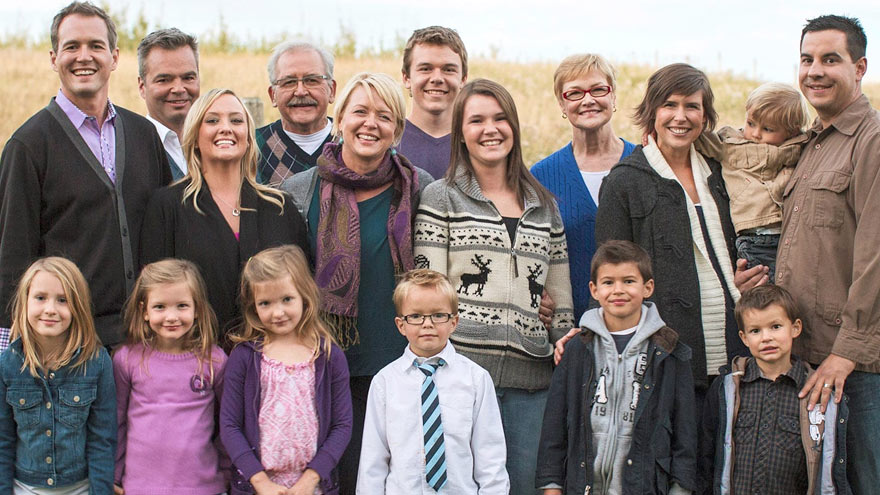No-Cost Genetic Testing
Early detection of disease-causing variants in the genes has the power to improve health outcomes and raise awareness for your family members and future generations.
October 14, 2019

Your mother had breast cancer. Your uncle had colon cancer. A cousin has stomach cancer. Could yours be the next name to make the family cancer list? “Possibly,” says Dr. Robert Nathan Slotnick, MD, PhD, Medical Geneticist at Renown Medical Group. In this article, the doctor discusses the genetics behind Lynch syndrome — and how you and your family can fight it.
Lynch syndrome, also known as hereditary non-polyposis colorectal cancer (HNPCC), is one of the most common genetic conditions known to increase cancer risk in individuals and families. It enables colon and other cancers to develop by causing mutations in mismatch repair (MMR) genes.
“The genes MLH1, MSH2, MSH6, PMS2 and EPCAM normally help to repair damaged DNA,” explains Dr. Slotnick. “But when they don’t work properly, naturally occurring DNA replication errors are not repaired efficiently. These errors accumulate and cancer can be the result.”
Colon cancer is just one of many possibilities.
People with Lynch syndrome also have a higher risk of developing endometrial cancer (cancer of the inside lining of the uterus) as well as cancer of the ovaries, stomach, pancreas, kidney, brain, and bile duct, among others. These syndrome-enabled cancers often appear in patients before the age of 50.
The family connection to cancer is a strong one notes the doctor.
“Cancer is best considered a genetic disease because it is always tied to changes (or mutations) in our inherited material: our DNA,” says Dr. Slotnick. “These DNA changes cause cells to lose control of their normal constraints on growth and metabolism and can allow abnormalities to develop.”
“Although all cancers are genetic,” he adds, “not all cancers are hereditary or passed down through generations.”
But because Lynch syndrome IS a hereditary condition, personal and family cancer histories provide invaluable information toward diagnostic confirmation and to a path of surveillance, prevention and treatment. Once a strong family history of cancer is confirmed, doctors and geneticists can move forward with targeted genetic testing to identify specific gene mutations. If Lynch syndrome is diagnosed, testing can also reveal your risk for associated cancers.
And your results could be a wake-up call to family members.
According to the Centers for Disease Control and Prevention (CDC), close relatives of people with Lynch syndrome have a 50% chance of having similar gene mutations and a higher risk of cancer.
The good news is detection and prevention progress is being made.
“Lynch is just one of many cancer syndromes where risk is tied to heredity,” explains Dr. Slotnick. “In the last few years, our ability to identify those at risk for this type of cancer predisposition has improved markedly, both in diagnostic accuracy and cost. This allows us to provide aggressive surveillance and prevention choices to individuals and families at risk. Healthier families and lower cost: it’s a win-win.”
If testing shows you have Lynch syndrome, then what? Well, your first step is to take a deep breath and feel empowered by the information — because it allows you to be proactive about your health. Your next step is to speak with your doctor to fully understand your diagnosis and how it may affect you and your family.
Dr. Slotnick reminds his patients, “For each Lynch cancer that we pick up, there are four to six family members who don’t have cancer, but who are at risk.”
And the overall number of those affected could be much larger. Lynch Syndrome International states that, “In the United States alone up to 1 million people are projected to have Lynch syndrome but only 5% are currently diagnosed.”
Receiving a diagnosis of Lynch syndrome is the crucial first step in your future wellness. Having this knowledge is powerful ammunition that you and your doctor can use to create a plan to fight for your health — and the health of your family members.
Your fight starts with a one-two punch. First, your doctor and care team work with you to create a treatment plan to address any current cancer challenges you may have. Then you can concentrate on preventive measures to battle cancers with a likelihood of occurring in your future. Whether those measures include a simple lifestyle change or involve a surgical procedure, reducing your cancer risk is the goal.
But the fight’s not over, yet. Your family’s health comes next. And that fight begins with you sharing your Lynch syndrome diagnosis and genetic testing results with family members. What you know could help them discover their own risks for cancer. Additionally, it could allow them to start fighting sooner by taking precautions to reduce their chances of developing the disease.
As Dr. Slotnick explains, every fight is different.
“Each cancer is different and each therapy should reflect this uniqueness,” advises the doctor.
Most importantly, Dr. Slotnick wants people to feel hopeful and understand that innovations in care are improving outcomes every day.
“As we move into the era of ‘personalized therapeutics,’ we have developed targeted patient- and cancer-specific therapies,” he encourages. “We’re doing that now for many cancers, and this ability will continue to grow.”